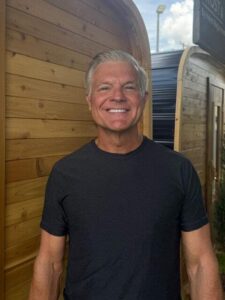The monumental importance of sleep and exercise for health and longevity has been proven over and over again in scientific research. The foundational health practices of exercise, quality sleep, and a healthy diet will do more for your health than anything any doctor, fad diet, supplement, or medication can do for you. I constantly tell my patients that they can do more for themselves than I can ever do for them by pursuing these foundations of health.
Sleep is easy to explain. First and foremost, make sure you are getting enough, ideally 7 or more hours a night, but also work on the quality of sleep to get proper REM and deep sleep. Exercise and diet can be a little more complicated and nuanced depending on your lifestyle, age, and health goals. One question that comes up a lot is should you exercise if you aren’t getting good sleep. An interesting study on exercise and cognitive function may have answered this question.
Should you exercise after a night of poor sleep?
The scientific literature well establishes that exercise can enhance cognitive function and memory across all age groups, not just middle-aged and older adults. Particularly intense exercise is recommended.
One study took a group of older adults and implemented a vigorous exercise program and showed an actual increase in the hippocampal area of the brain. The hippocampus is involved in learning and memory, and typically, in our later years, we tend to lose 1 – 2% of hippocampal volume PER YEAR. So, this study suggests that regular exercise can stop brain atrophy as we age. It is believed that a lot of this has to do with the production of BDNF (brain derived neurotrophic factor) that occurs with vigorous exercise. This protein acts as a messenger molecule that promotes new neuron growth and neuroplasticity.
This translates into the nervous system and the brain’s ability to reorganize connections when learning or after injury, such as after a stroke. Neuroplasticity, the ability of the brain to adapt and change after injury or during learning, is a function that becomes less effective as we age. For this adaptation, think in terms of interval training, HIIT, high-intensity circuit training, and zone 4 or higher aerobic activity. In other words you have to be getting after it to increase the production of this beneficial protein.
It could be argued that exercise may be the single most effective way to move the needle on health and longevity. For instance, there are studies that show people who sleep less than 6 hours per night have an increase in all causes of mortality if they are sedentary but this does not seem to be the case for people who are physically active. In other words, exercise seems to negate the deleterious effects of poor sleep. One way this probably plays a role is by regulating blood sugar with exercise. Poor sleep causes blood sugar to run higher due to increased insulin resistance, but exercise helps to reduce this elevation, thus negating the negative effects of higher blood sugar.
I constantly tell my patients that other than exercise, one of the single most important things you can do to improve health and longevity is to keep blood sugar as low as possible in the normal range. The deleterious cascade of things that go on internally with elevated blood sugar is devastating to our health. Mainly, it increases inflammation, one of the major factors in accelerating age and disease. It also negatively affects hormone production, mood, sleep, and just about every single energy pathway, including sugar and fat metabolism, fat storage, and energy production.
So next time you are thinking about skipping your workout because of a poor night’s sleep, do yourself a favor and power through the fatigue and go get after it in the gym or on the road, or wherever you like to make your body do the work. You will feel better after, probably sleep better that night, and you just may be preserving the crucial brain matter we lose as we age.




